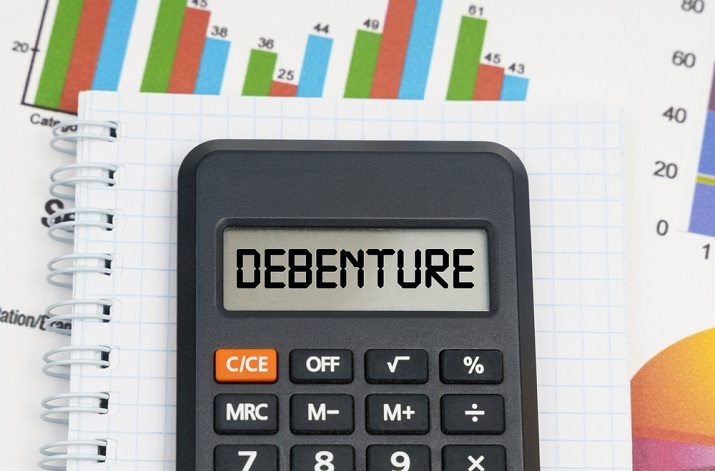
 Data Structure
Data Structure Networking
Networking RDBMS
RDBMS Operating System
Operating System Java
Java MS Excel
MS Excel iOS
iOS HTML
HTML CSS
CSS Android
Android Python
Python C Programming
C Programming C++
C++ C#
C# MongoDB
MongoDB MySQL
MySQL Javascript
Javascript PHP
PHP
- Selected Reading
- UPSC IAS Exams Notes
- Developer's Best Practices
- Questions and Answers
- Effective Resume Writing
- HR Interview Questions
- Computer Glossary
- Who is Who
Redemption of Debentures
What is Debenture?
Debentures are long-term loans issued by corporate firms and governments to raise capital. For example, governments may, the government may raise money for building roads by issuing debentures. In such a case, those who buy the debentures are creditors, not shareholders.
Like bondholders, debenture owners may also get interest on their investments. However, this is only the case with some types of debentures. The interest rate is also known as the coupon rate in the case of debentures and these rates are either fixed or floating in nature depending on the nature of debentures.
Debenture holders cannot claim over the issuer's assets as they are a form of unsecured debt instrument. There is also no collateral to back the debentures fluidity. However, the absence of collateral is offset by low risk, stability, and better earnings.
Also, a financially sound company with a dependable credit rating attracts investors as it shows the safety of the investment. Besides, if the rates of interest are floating, earnings improve when rates improve.

Types of Debentures
Debentures may be classified into the following three categories
-
Non-convertible debentures (NCDs) NCDs are a pure form of debentures that cannot be converted to shares. They have a maturity value that can be redeemed at a given maturity period. The debenture owners get the principal and interest on the maturity of the debentures. Therefore, debentures are a type of loan that offers repayment after a fixed given period.
A specific type of non-convertible debenture is zero-interest debenture or deep discount debenture which is offered at a discount to the investors. In such a debenture there is no interest paid, but as the debentures are discounted heavily, the investors get a higher value upon maturity of the bond.
Fully convertible debentures (FCDs) FCDs are converted to shares depending on terms of issue, price, and time. Usually, FCDs carry a lesser interest rate as they have the attractive option of getting converted to shares. Once converted, they may be traded like ordinary shares in the market. Their price and income are then governed by market forces once the debentures are converted to shares. FCDs do not have a maturity value as they don't expire; instead, they are converted to shares and act like a share thereafter.
Partly convertible debentures (PCDs) PCDs have both options of convertibility blended into one. They have a convertible part and a non- convertible part. On the given date of conversion, the convertible part is converted into a share while the non-convertible portions remain non- converted. This type of debenture is more attractive than the other two types of debentures as it contains both the features of NCDs and FCDs. The interest rate for the non-convertible part is usually mentioned by the issuer of partly convertible debenture issuers. Investors can trade the convertible part in the markets after the given date of conversion.
Note It is notable that there are all types of investment options with debentures and investors can choose their preferred type of debenture depending on their investment appetite. The NCDs are good for a fixed income, while FCDs are good for a long time financial outlook. PCDs include both the features of NCDs, and FCDs and hence are attractive to all types of investors. It is the discretion of the investor what kind of debenture they are interested in as all types of income options are available in the case of debentures.
What is Redemption of Debentures?
Redemption of debentures means the repayment of the accrued amount of debentures by the enterprise. Liability on account of debentures is relieved when debentures are reclaimed. That is, the amount of capital required for the redemption of debentures is generally large, and, hence, economic enterprises make adequate provisions out of gains and accrue capital to reclaim issued debentures.
The redemption of debentures means repayment to the debenture holders.
Debentures can be redeemed either at a premium or at par.
The rules and regulations of redemption are usually offered in the prospectus while inviting applications for the issue of debentures.
Debentures can be reclaimed mainly in four ways, namely
Payment in a lump sum
Payment in installments
Purchase in the open market
By converting the debentures into shares or new debentures.
Payment in a Lump Sum
In this case, the enterprise pays the entire amount of debenture to debenture holders in one go. The enterprise has to accumulate the sum total of the amount in this case. So, only financially sound corporations and governments tend to opt for this process for reclaiming the debentures.
Payment in Installments
Some debentures are also reclaimed by the issuing enterprises via installments of repayment. In such cases, the total amount of debenture is usually divided by the number of years, and payments of each year are paid on an annual basis. Notably, the authentic debentures reclaimable can be found by the sources of furnishing the needed number of lots out of the total debentures outstanding for the payment
Purchase in the open market
When enterprises aim for cancellation of ownership for debenture-holding, they can do so by buying debentures in the open market. This operation of buying and canceling the debentures comprises purchases in the open marketplace. Once the enterprise pays for the debentures, the ownership is transferred from the debenture holder to the enterprise, and cancellation of ownership happens.
By converting the debentures into shares or new debentures
This process of redemption is applicable only to convertible debentures. In such cases, the debenture is converted to a new debenture or a share that can be traded at par or at a discount in the market. The new shares or debentures can also be traded at a premium. The option that allows debenture holders to redeem their debentures in such a manner is mentioned in the prospectus that is issued while inviting investment by the enterprises.
Conclusion
Debentures are a very popular instrument for enterprises to raise capital. Since, it does not require any collateral, renowned corporations, and governments often resort to this mode of capital accumulation. In order to keep an eye on the best forms of investment, knowledge of the redemption of debentures is indispensable.
FAQs
Qns 1. What is meant by redemption of debentures?
Ans. Redemption of debentures means the repayment of the accrued amount of debentures by the enterprise.
Qns 2. In how many and in which ways can a debenture be redeemed?
Ans. Debentures can be reclaimed mainly in four ways
Payment in a lump sum
Payment in installments
Purchase in the open market
By converting the debentures into shares or new debentures.
Qns 3. Can a debenture be converted into a share?
Ans. Yes. Convertible debentures can be converted into shares according to the rules mentioned in the prospectus issued by the enterprise while inviting applications.

